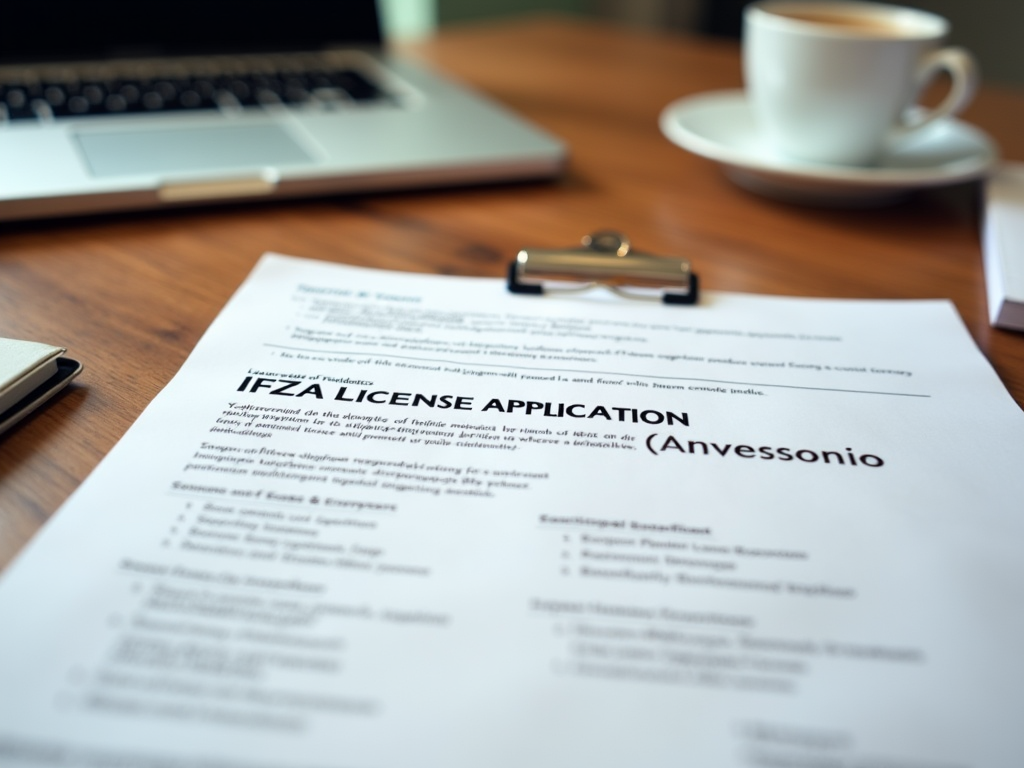The structure of a company significantly impacts the fees associated with obtaining an International Free Zone Authority (IFZA) license in Dubai. Generally, the type of business entity you choose, whether it’s a sole proprietorship, limited liability company (LLC), or a branch office, will determine not only the fees involved but also the regulations and requirements you need to comply with. Understanding these variations is crucial for entrepreneurs looking to establish a cost-effective presence in one of the world’s most vibrant commercial hubs. In this article, we will delve into how various company structures influence IFZA license fees while providing insights into budgeting for your business startup.
Understanding IFZA License Categories

The IFZA offers several license categories, each tailored to different types of business activities and structures. Here are the primary types of licenses:
- Commercial License: Suitable for trade and commercial activities.
- Professional License: Designed for service providers and professionals.
- Industrial License: Required for manufacturing or industrial activities.
- E-commerce License: Focused on businesses operating predominantly online.
The license type chosen will affect the associated fees, including registration costs, annual renewal fees, and additional charges for specific activities. Furthermore, the complexities of your business model, such as the number of shareholders and the expected turnover, may necessitate choosing a particular license type. Thus, selecting the right license is not just about compliance but also about optimizing costs.
General Manager vs. Shareholder Roles

When establishing a company in the IFZA, the roles of shareholders and general managers can vary widely, which can influence the licensing fees. A business structure that requires a local sponsor or partner may incur additional costs compared to a 100% foreign-owned setup. Also, the number of shareholders impacts the capital requirements and associated license fees. Here’s how roles can vary:
- Sole Proprietor: Has full control and management responsibilities but bears all risks and costs.
- LLC with Multiple Shareholders: Allows shared direction and responsibility, but may involve higher fees due to complex governance.
- Branch Office: Operates under a parent company, typically carrying forward the fees and structure from the original entity.
This array of options creates a diverse business landscape, where costs are closely tied to the decision made regarding company structure and governance. The process of choosing the optimal structure should be weighed against potential association and licensing fees.
The nature of your business activities can heavily influence the IFZA license fees. Each category of activity has specific licensing requirements that can alter costs. Here are common areas that affect fee structures:
- Type of Business: The more complex the business activities, the higher the fees. For instance, manufacturing licenses often incur costs related to equipment and facilities.
- Compliance Requirements: Professional services may require additional certifications or compliance with local laws, leading to increased fees.
- Workforce Size: More employees typically lead to higher costs related to labor and additional licenses or permits.
Understanding the implications of your specific business activities is vital for setting a realistic budget. Permits, tests, and approvals can add up, so a clear assessment of potential costs aligned with your activities is crucial.
Administrative and Renewal Fees
The administrative costs associated with incorporating your company and maintaining your IFZA license are other factors influenced by company structure. Initially, you might find lower registration fees for simple structures but annually, costs can escalate. Following are key considerations regarding fees:
- Initial Registration Fees: Depending on structure, this can vary significantly.
- Annual Renewal Costs: Most licenses require annual renewal, and the costs will differ based on your business activities, employee count, and company structure.
- Additional Permits: Certain structures may necessitate extra permits depending on their operational complexity.
Foreseeing these costs allows business owners to plan better, ensuring resources are allocated efficiently to balance expenses with potential revenue streams.
Conclusion
In summary, the structure of a company has a profound impact on IFZA license fees. The type of business entity, roles of stakeholders, nature of business activities, and the associated administrative costs all come into play in determining the overall cost of obtaining and renewing an IFZA license. Therefore, carefully evaluating your business needs and choosing the right company structure is essential for not only ensuring compliance but also for optimizing profitability in a competitive market. Understanding these relationships can greatly enhance your initial budgeting and long-term financial planning for your business.
Frequently Asked Questions
1. What is the IFZA license and why is it important?
The IFZA license is a business license issued by the International Free Zone Authority in Dubai, allowing foreign nationals to set up a business in the UAE with benefits such as tax exemptions and 100% ownership. It’s crucial for legal operation and access to various business incentives.
2. How does the company structure affect my ability to obtain an IFZA license?
The company structure you choose dictates the type of license you can apply for, the fees you need to pay, and the legal requirements you must meet. Different structures such as LLCs or sole proprietorships have varying implications on licensing.
3. Are there hidden costs associated with IFZA licenses?
Yes, potential hidden costs can arise from administrative fees, additional permits, compliance requirements, and renewal costs, which can accumulate based on the structure and nature of your business.
4. Can I change my business structure after obtaining an IFZA license?
Yes, you can change your business structure, but it typically involves submitting an application to the IFZA for approval, which might incur additional costs and administrative processes.
5. What are the penalties for not renewing my IFZA license on time?
Failing to renew your IFZA license could result in penalties, including fines, suspension of your business activities, or even legal action. Timely renewal is essential to maintain compliance with the regulatory framework.
